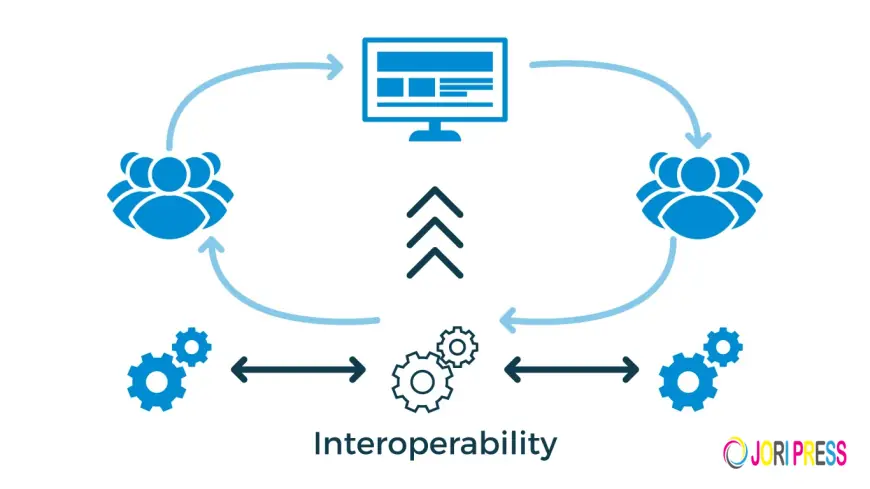What Is Healthcare Interoperability and Why It Matters for Modern Hospitals
Unlock the benefits of Healthcare Interoperability—connecting hospital systems, enhancing patient care, reducing errors, and streamlining healthcare operations.

In the digital age, hospitals generate massive amounts of patient data every day — from lab results and imaging scans to prescriptions and clinical notes. But all this information is only valuable if it can move seamlessly between systems, providers, and patients. This is where Healthcare Interoperability comes in.
Healthcare interoperability is more than just a technical solution — it’s the framework that allows modern hospitals to connect systems, share insights, and deliver patient-centered care efficiently and safely.
Understanding Healthcare Interoperability
At its simplest, healthcare interoperability is the ability of different health information systems to communicate and exchange data reliably. Whether it’s an electronic health record (EHR), laboratory information system, pharmacy application, or telemedicine platform, interoperability ensures that all data can be accessed and understood across the care ecosystem.
Think of it as a universal translator for healthcare data — enabling systems to “speak the same language” so clinicians can make informed decisions without delays or errors.
How Hospitals Benefit from Interoperability
1. Delivering Better Patient Care
Patients often interact with multiple healthcare providers. Without interoperability, critical information can be scattered or lost, leading to delays or duplicated tests. Interoperable systems provide a comprehensive view of a patient’s history, allowing doctors to make faster, more accurate decisions.
For example, a patient admitted to the emergency room can have their previous imaging results and lab reports instantly available, improving diagnosis speed and reducing the risk of complications.
2. Reducing Medical Errors
Incomplete or inaccessible data is a major contributor to medical errors. Interoperability ensures that every healthcare provider involved in a patient’s care has access to up-to-date and consistent information.
Medication lists, allergies, and past procedures are shared across systems, helping prevent harmful drug interactions, redundant tests, or incorrect treatments. This improves patient safety and builds trust in the healthcare system.
3. Boosting Operational Efficiency
Hospitals are complex organizations juggling patient care, administration, and logistics. Interoperability streamlines data exchange, reducing administrative workload. Staff spend less time manually transferring records and more time focusing on patient care.
Automated workflows also improve hospital efficiency — from faster discharge processes to coordinated care transitions between departments and facilities — saving both time and resources.
4. Empowering Patients
Modern healthcare emphasizes patient engagement. Interoperability allows patients to access and share their medical information through portals, mobile apps, or connected devices.
By giving patients insight into their own health data, they can track conditions, understand treatment plans, and collaborate more effectively with healthcare providers. Informed patients are more likely to adhere to treatment and manage chronic conditions proactively.
5. Supporting Population Health Management
When patient data is standardized and shared across systems, hospitals and public health organizations can analyze trends at the community or population level.
Interoperable systems enable proactive care strategies, such as identifying high-risk populations, tracking outbreaks, and monitoring chronic disease management. This approach reduces preventable hospitalizations and helps communities maintain better overall health.
6. Encouraging Innovation
Access to integrated, high-quality data allows hospitals to leverage technology like AI, machine learning, and predictive analytics. These tools can identify patterns in patient data, forecast risks, and personalize care plans.
Interoperability accelerates research and innovation, supporting smarter, data-driven solutions that improve healthcare outcomes for everyone.
Overcoming Challenges in Healthcare Interoperability
While the benefits are clear, implementing interoperability isn’t without challenges. Hospitals must integrate diverse EHR systems, ensure secure and compliant data sharing, and standardize information for accurate interpretation.
Adopting open standards like HL7 FHIR, investing in API-based systems, and establishing governance policies are crucial steps toward creating a fully connected healthcare network.
The Future of Connected Hospitals
The future of modern hospitals depends on seamless data exchange. Interoperable systems enable real-time insights, predictive care, and coordinated workflows — transforming healthcare from reactive to proactive.
Healthcare Interoperability is the key to this transformation. Hospitals that embrace connected systems improve patient safety, enhance efficiency, reduce costs, and empower patients to take control of their health.
To learn more about how advanced interoperability solutions can revolutionize hospital operations and patient care, visit scale health tech — your partner in creating a connected, modern healthcare ecosystem.
What's Your Reaction?
 Like
0
Like
0
 Dislike
0
Dislike
0
 Love
0
Love
0
 Funny
0
Funny
0
 Angry
0
Angry
0
 Sad
0
Sad
0
 Wow
0
Wow
0


















































